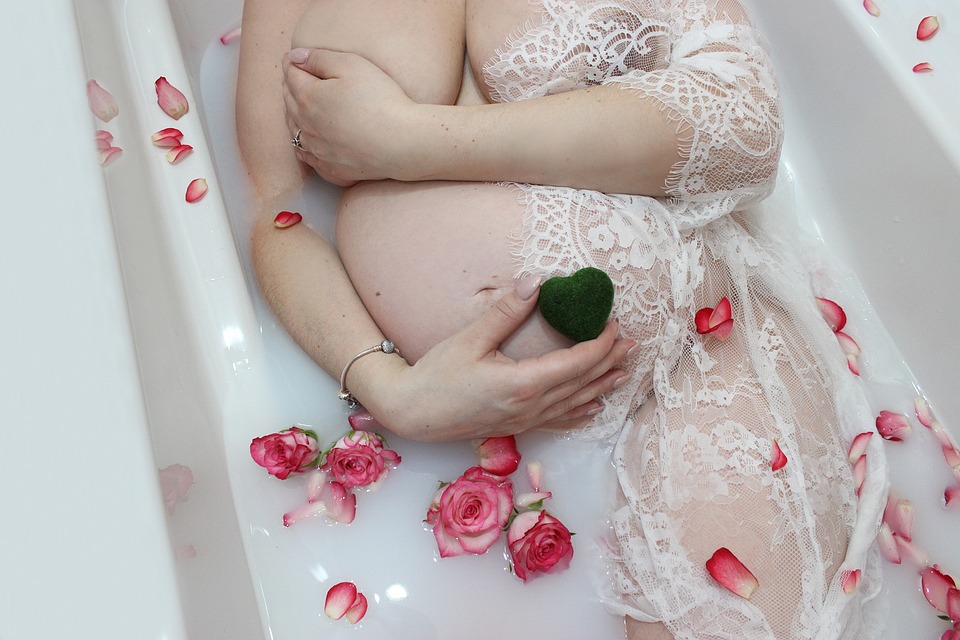
Pregnancy is a miraculous and life-changing experience for women. However, with all the information and myths surrounding pregnancy, it can be overwhelming and confusing for expectant mothers. Many misconceptions about pregnancy have been passed down through generations, leading to confusion and anxiety among pregnant women.
In this article, we will debunk some of the common pregnancy myths and provide accurate information about pregnancy to help expectant mothers navigate through this special time with peace of mind.
Myth #1: You can’t exercise during pregnancy
One of the most common myths about pregnancy is that women should avoid exercise during pregnancy. This misconception has been debunked by numerous studies that have shown the benefits of staying active during pregnancy. In fact, exercising during pregnancy can help reduce the risk of gestational diabetes, decrease back pain, improve mood and sleep, and even shorten labor time.
Of course, it is important to consult with your healthcare provider before starting any exercise regimen during pregnancy. However, most women can safely continue their pre-pregnancy exercise routine with modifications as their pregnancy progresses. Activities such as walking, swimming, prenatal yoga, and light weight training are all safe and beneficial for pregnant women.
Myth #2: You can’t eat seafood during pregnancy
Another common misconception about pregnancy is that women should avoid eating seafood due to the risk of mercury poisoning. While it is true that certain types of fish contain high levels of mercury, there are many types of seafood that are safe to consume during pregnancy. In fact, seafood is an excellent source of essential nutrients such as omega-3 fatty acids, protein, and vitamin D, which are important for the development of the baby’s brain and eyes.
Pregnant women should aim to consume a variety of seafood, including salmon, shrimp, tilapia, and sardines, while avoiding high-mercury fish such as swordfish, shark, king mackerel, and tilefish. It is also important to cook seafood thoroughly to avoid the risk of foodborne illnesses.
Myth #3: You can’t dye your hair during pregnancy
Many women believe that they should avoid dyeing their hair during pregnancy to avoid potential harm to the baby. However, there is no evidence to suggest that hair dye is harmful to the baby when used in moderation. Most research studies have found that the chemicals in hair dye are not absorbed into the bloodstream in significant amounts, making it safe to use during pregnancy.
That being said, it is best to wait until the second trimester to dye your hair, as this is a period of rapid development for the baby. It is also recommended to avoid chemical treatments such as keratin treatments and straightening treatments during pregnancy. If you are concerned about using hair dye during pregnancy, you can opt for natural hair dyes or highlights that do not come into contact with the scalp.
Myth #4: You shouldn’t drink coffee during pregnancy
There is a common belief that pregnant women should avoid caffeine, including coffee, during pregnancy. While it is true that high levels of caffeine can have negative effects on the baby, moderate caffeine consumption is generally considered safe during pregnancy. The American College of Obstetricians and Gynecologists (ACOG) recommends limiting caffeine intake to 200 mg per day, which is equivalent to about one 12-ounce cup of coffee.
Studies have shown that moderate caffeine consumption is not associated with an increased risk of miscarriage or preterm birth. However, it is important to be mindful of the caffeine content in other sources such as tea, chocolate, and soft drinks. If you are a heavy coffee drinker, try switching to decaffeinated coffee or herbal teas to reduce your caffeine intake.
Myth #5: You can’t travel during pregnancy
Many women believe that they should avoid traveling during pregnancy due to the risk of complications. While it is important to take precautions when traveling during pregnancy, it is generally safe for most women to travel until the third trimester. In fact, traveling during pregnancy can be an enjoyable and memorable experience for expectant mothers.
Before embarking on a trip, it is important to consult with your healthcare provider to ensure that you are fit to travel. It is also recommended to take frequent breaks, stay hydrated, and wear compression socks to reduce the risk of blood clots. Avoid traveling to destinations where there is a risk of Zika virus or other infectious diseases, and make sure to have access to medical care in case of an emergency.
Myth #6: You will lose your independence after having a baby
Many women fear that having a baby means losing their independence and freedom. While it is true that having a baby will bring about significant changes in your life, it does not mean that you have to sacrifice your independence. With the support of your partner, family, and friends, you can continue to pursue your interests and hobbies while taking care of your baby.
It is important to establish a support network of trusted individuals who can help you with childcare, housework, and emotional support. Communicate openly with your partner about your needs and concerns, and make time for self-care and self-discovery. Remember that it is okay to ask for help and take breaks when needed.
Myth #7: You will have a perfect pregnancy and delivery
Many women believe that pregnancy and childbirth are supposed to be perfect and painless experiences. However, the reality is that pregnancy can be filled with ups and downs, and childbirth can be a challenging and unpredictable process. It is important to be prepared for the unexpected and stay flexible throughout your pregnancy journey.
Every woman’s pregnancy experience is unique, and it is normal to experience a range of emotions and physical changes during pregnancy. It is important to prioritize self-care, eat a healthy diet, stay active, and get plenty of rest to support your physical and emotional well-being. Attend prenatal appointments, childbirth classes, and support groups to gather information and connect with other expectant mothers.
In conclusion, it is important to separate fact from fiction when it comes to pregnancy myths. By debunking common misconceptions about pregnancy, we can empower expectant mothers to make informed decisions and enjoy a healthy and fulfilling pregnancy experience. Remember to consult with your healthcare provider for personalized advice and support throughout your pregnancy journey.






